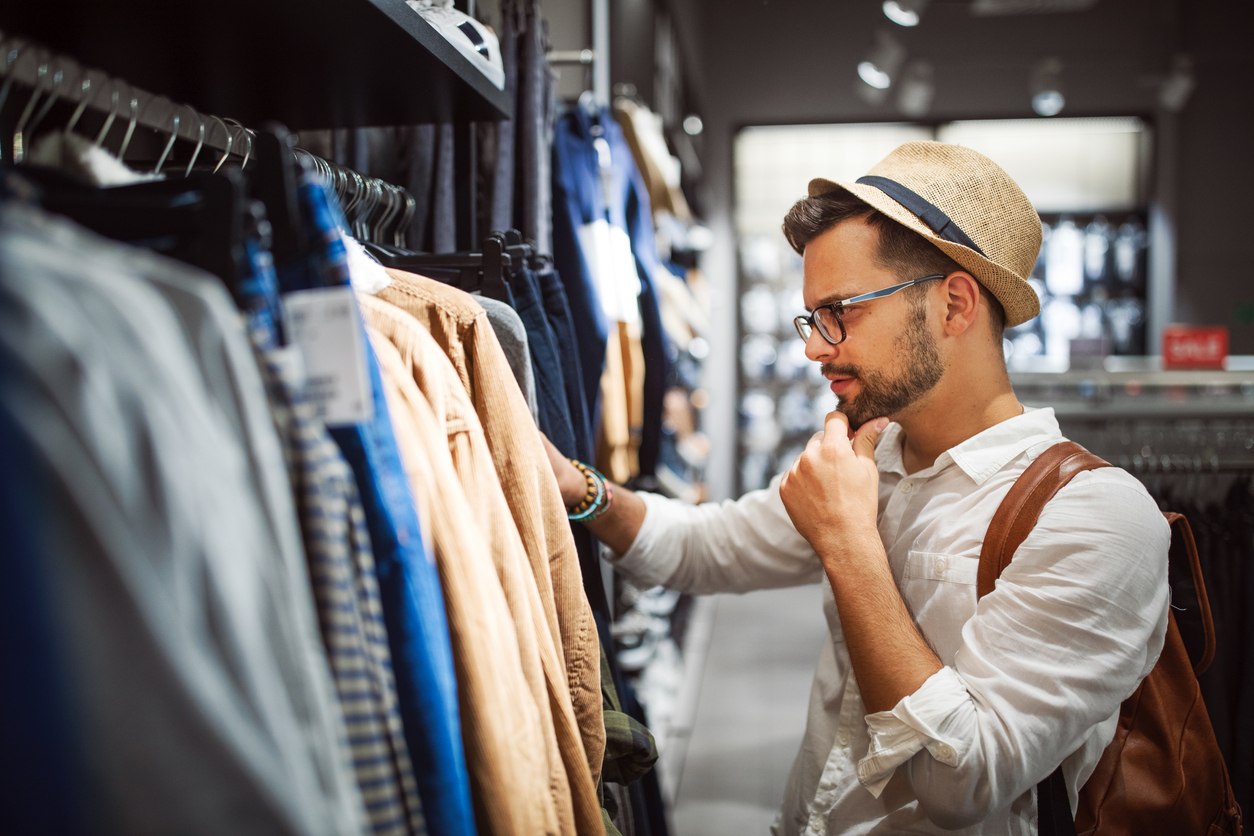This One Word May Make You Spend More Money
Companies may be using this hidden trick to get you to shell out more cash.

Shopping can be a challenging feat sometimes—especially if you're trying to stick to a list or budget. After all, you have to consciously stop yourself from falling victim to the constant marketing tricks companies use to try to get you to actually pay more. And you likely don't even realize some of the tricks they are using. According to recent research, companies may frame something as an "add-on" to make you spend more money. Read on to find out how this marketing trick works, and for more tips to use on your next shopping trip, discover The Incredible Target Shopping Secret You'll Wish You Knew Sooner.
A 2019 study published in the Journal of Marketing Research and conducted by the University of British Columbia (UBC) Sauder School of Business found that shoppers are up to one-third more likely to upgrade to a premium option when the extra cost is marketed as an "add-on," rather than a higher overall price.
Study co-author David Hardisty, PhD, assistant professor of marketing and behavioral science at UBC Sauder, gave an example of this in a statement for the study. He said when booking a plane ticket, consumers are more likely to buy a $200 ticket that involves a two-hour layover and then upgrade to a direct flight by paying an extra add-on of $50 than just buying a direct ticket for $250.
"When you see '$50 more' as an add-on price, it's a smaller number than the total, and we focus on that smaller number," co-author Dale Griffin, PhD, professor and advisory council chair in consumer behavior at UBC Sauder, said in a statement. "Mathematically, the prices are the same, and on consideration we can see that, but intuitively add-on prices just feel less expensive."
The researchers tested this with a series of different scenarios including participants being asked to donate to a local food bank, buying a computer monitor, choosing an external hard drive, and even ordering breakfast. However, they did note that this phenomenon only occurred with pricing, not other product upgrades. So if a consumer is looking at two-terabyte hard drives, they aren't likely to be swayed to a four-terabyte hard drive by a marketing scheme that sells it as "two terabytes more."

According to Steve Orlowski, a former financial advisor for Allstate and the current general manager of Review Home Warranties, people are willing to pay more when they see the word "add-on" because "they associate the word with similar language like 'upgrade' or 'extra,' implying they get something special that those that just pay the base price or standard fare don't get."
Orlowski says shoppers really need to focus on whether or not this "add-on" is actually a deal. They can do this by reading footnotes that outline restrictions or terms and conditions to find out whether the additional cost is actually worth any extra services or items they may be receiving.
"Depending on the industry, it might be worth waiting for a better deal," he says. "In most niches, demand fluctuates depending on the time of year. If you time the purchase just right, when demand is at the low-end, you may be able to find a similar add-on at a lower price or even equal to the base price. When it comes to buying anything, waiting more often than not pays off."
Unfortunately, trying to train yourself from falling for this psychological trick isn't easy work. Keep reading for tips on keeping your spending defenses up, and for more financial advice, find out How Much Money You'd Save If You Made Your Coffee Every Day.
1
Always set a budget.

Nishank Khanna, the chief financial officer at Clarify Capital, says creating and sticking to a budget is a "tried and true way to avoid falling prey to add-on items that so easily lead to overspending."
"Setting intentions surrounding what we plan to buy and actually need builds a reasonable foundation to operate from," he says. "If you have a plan in place, you're much less likely to be swayed by emotions and impulsively make additional purchases." And for more useful content delivered straight to your inbox, sign up for our daily newsletter.
2
Commit to saving a specific amount of money.

Sometimes committing to saving a specific amount of money can either stop you from making unnecessary purchases or make sure you're financially secure even if you do. Michael Hamelburger, chief executive officer of Cost Reduction Consultants, recommends that people save 10 percent of their salary each year.
"In this way, even if you have purchases to make and may likely want to grab the add-on, you're still confident that you've set aside a portion of your income for future use," he explains. And for more ways to save, read up on the Money-Saving Tricks Only Walmart Insiders Know.
3
Make sure you compare your purchase with different retailers.

There's no such thing as too much comparison when it comes to buying something. Andrea Woroch, consumer-savings and shopping expert, says you should always comparison shop, as you can sometimes find a "discounted add-on for less at another store or site, whether it's the same brand or a similar product but different brand." And for more shopping help, find out The Rudest Thing You're Doing While Shopping.
4
Don't make a purchase before you add up the total cost.

Don't fall victim to an add-on by not calculating how much you're actually spending overall. "Taking the time to do the math provides a reality check that works as a safeguard for our spending habits," Khanna says. "When we see the full picture, we're more likely to buy only what we need and nothing more. This is especially true if that extra thing brings us outside of our budget." And for more ways you're falling in the trap of spending more, this is The One Shopping Habit That's Making You Spend More Money, Study Says.





















